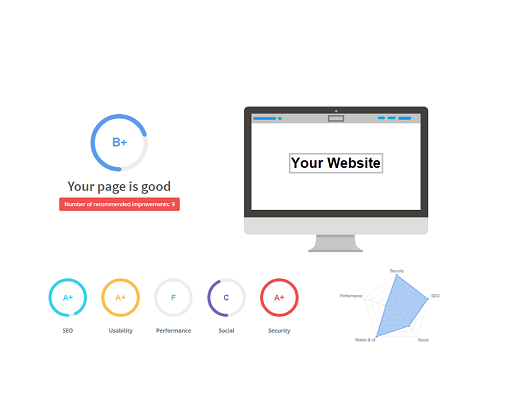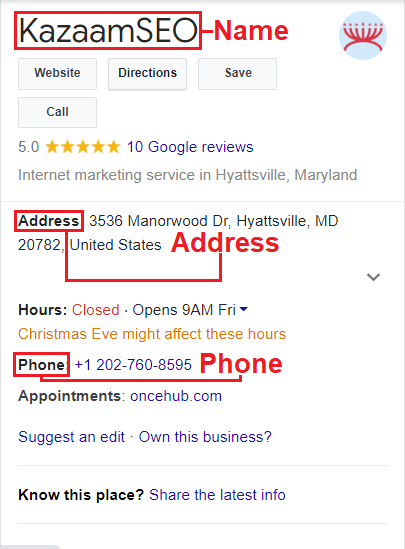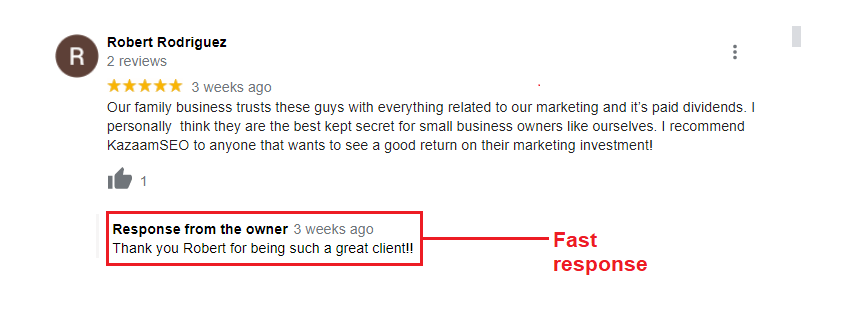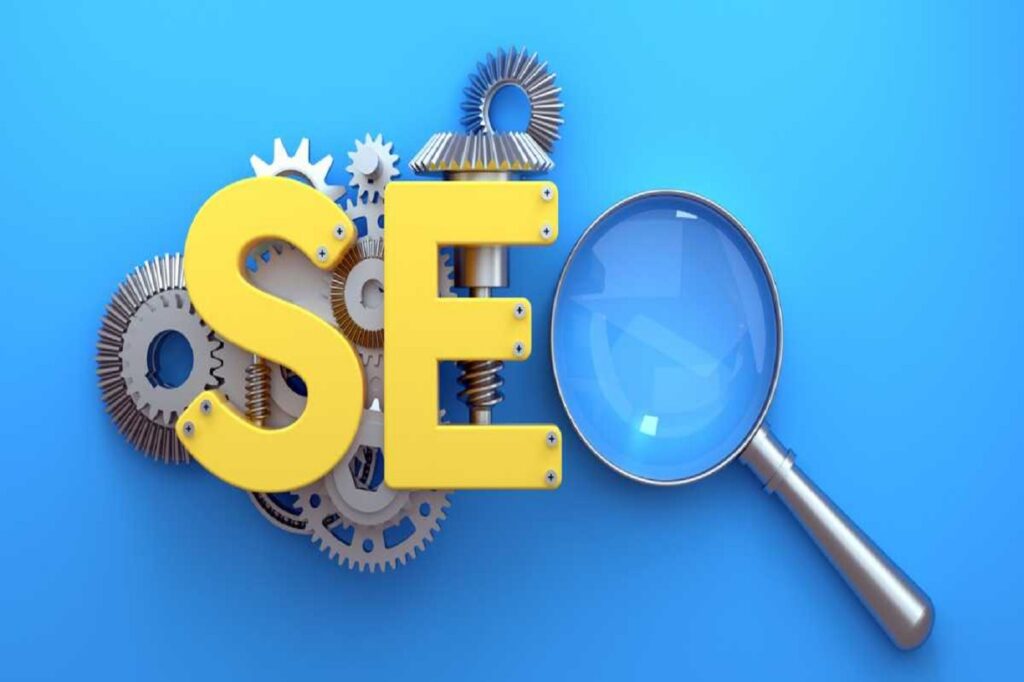We are going over SEO and why it’s a big help for your business or service. Here are the topics we are going to cover:

1. What is SEO?
–What is an audit?
–On-page SEO
–Off-page SEO
a. Google My Business
b. Citations
c. Reviews
d. Social Media
e. Chat
f. Backlinks
2. How It Helps Your Business
–Great User Experience
–Brings More Customers
–Increases Business Referrals
SEO has so many avenues that it’s difficult to keep up. On the other hand, we have just what you need to understand SEO and its process.
What is SEO?
SEO is one of the best things that ever happened to your business… besides you, of course. Similarly, you can think of it as an asset that helps make your dreams become reality. Not only is it safe, but it’s also customizable to your needs and goals.
SEO is mostly about generating traffic from searches by configuring a website’s pages and things off of the site. However, one must first optimize their site with the proper keywords to increase their rank on search engine results pages(SERPs). Once their site moves up the ranks, then they can expect a higher traffic flow. Firstly, the process begins with an audit of the website itself.
What is an audit?
An SEO audit details what your site already has and also what it needs to rank higher in SERPs. As a matter of fact, there are different types of website audits that could be important for your site to undergo. For example, there are citation audits, link audits, and even competitive audits. Each type of audit is a study of a specific need your site has.

This part of the audit shows what the site has right so far.

This part of the audit shows what may be needed to improve the site’s overall performance and ability for it to be found by search engines.
All in all, you might want to do what the audit recommends. After all, it’s in the best interest of your site to do everything humanly possible to get your site discoverable, so let’s go ahead and show you a bit more of the SEO process.
On-page SEO
Think of on-page SEO like fixing the outside of your car. You don’t want any scratches on the paint job, dents, or cracks in the windshield, do you? In other words, we must take care of your website with diligence like everything else. In addition, you want to wow webpage visitors with how organized and readable your content is. Specifically, on-page SEO consists of:
- Optimized text – The main keyword of each page needs to be strategically placed into the headings and body of text
- Internal contextual links – Links to related content on other pages of your site
- External links – Your content should link to relevant, high-authority sites
- Title and meta description – Every page should have a sizeable title and summary of its content that contains keywords
- Image Alt text – These are descriptions of images that express what your content is about
- Keyword in URL – That’s basically it, but make sure the URL is short
- Make sure the text of your content is at least 300 words long
In conclusion, on-page SEO focuses on what’s on the website itself.
Off-page SEO
This is a part of digital marketing. We optimize what is outside your website to improve its ranking. Of course, you don’t change anything on the site with off-page SEO. Nevertheless, it still affects rank, traffic flow, web authority, etc.
For example, you could post a blog from your site to Facebook. Let’s say that blog gets a lot of shares, mentions, and follows. Consequently, your site builds authority, and leads readers back to your site. That is off-page SEO at work. Several off-page factors include:
1. Google My Business
This helpful tool gets your business or service in front of potential customers. When they search for your business, they see its name, address, and phone number(NAP) or citations. Also, they can view business hours, promos, product photos, and product reviews.
2. Citations
When you create a business listing with your NAP, it must be the same on every listing and social media account associated with your business. As a result, this helps the online presentation of your brand or business.

3. Reviews
Asking customers to leave reviews of your service is essential. Responding to reviews, whether positive or negative, boosts trust people have in you. If people leave reviews, but you don’t respond, it’s like you don’t appreciate the business they give you. Communicate how much you value their time. Even if they leave a bad review, show that you want to resolve any issues they come across. Again, let them know you still value their business.

4. Social Media
It’s like the ultimate grape vine. Furthermore, word of mouth spreads information like wildfire if it involves something interesting. If you run a pastry shop that makes literal Ferris wheels out of cake, post a short video of you in action. After that, people will be amazed, and you’ll get followers. Then, followers turn into customers. Therefore, everybody wins.
5. Chat
Get involved with your customers. You can reply to their questions or comments, for instance. In fact, you want them to know that a human being runs the online business and not bots with automated responses. Then, if you’re overwhelmed, a nice chatbot can do the trick. On the other hand, using it too often can lower their buying confidence. It’s best to engage with your customers.
6. Backlinks
These are also known as inbound and incoming links. As a matter of fact, they are very powerful for acquiring more web authority and other SEO benefits, like higher rank and traffic. A method called “link building” concentrates on getting those links from relevant, popular sites. You could get links by guest posting, creating up-scale content, ego bait, or broken link building. These are based on careful and trusted SEO methods, of course.
In contrast, some links can weaken your chances of achieving higher authority if they come from spam sites. Furthermore, some of these sites may violate Google’s Webmaster Guidelines. They may also be distrusted, causing sites they link with to lose trust, as well.
It Helps Your Business
1. Great User Experience
SEO helps business owners create simple but user-friendly websites. Some have an old-fashioned approach: they think it’s all about satisfying the standards of search engines. However, it’s also about creating a better user experience these days.
Visitors usually extend their stay on neat and organized websites, thus lowering bounce rates. Similarly, good reads keep readers’ attention. They may share or post them, resulting in more traffic.
2. Brings More Customers
There is no point in building traffic-free websites. Maintaining them wastes time and money. You truly need SEO to rise above competition and multiply your customer base. In fact, it may be today’s most coherent and cost-efficient marketing tactic. In contrast, you could run ad, cold-emailing, or cold-calling campaigns. Such campaigns can take up too much time and money, especially for new business owners. So that’s why so many business and brand use SEO. It yields long-term results that last.
3. Increases Business Referrals
Attracting businesses that give you customer referrals helps more than you think. They don’t necessarily have to be competition. Contrarily, they can partner with you to boost your business.
For instance, let’s say you own a store that sells sneakers. You collaborate with a business that specializes in custom sneaker design. Next thing you know, you’re starting a brand with the owner. Finally, the sales are doubling, even tripling at this point. You’ve also made a lifelong business partnership. Think of the possibilities.
Need SEO Help?
If you need more help after reading this article, no worries. We are here to assist you in your SEO efforts. Also, you can contact us for more in-depth information.






